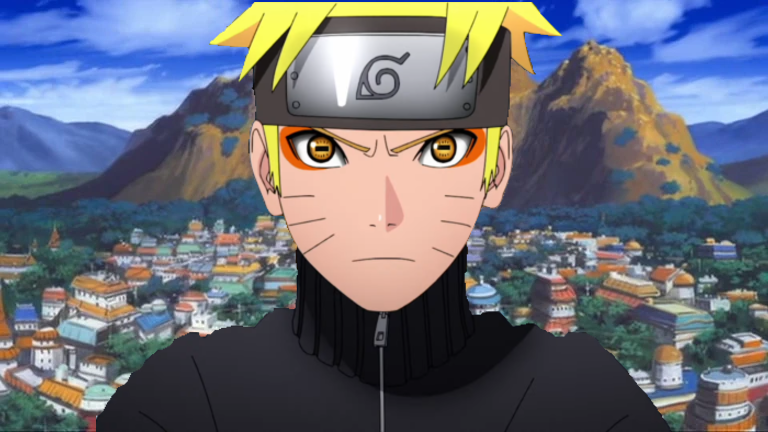
If you grew up in the mid-2000s watching Toonami regularly, like me, then you most definitely saw Naruto. It was one of the most hyped action shows at the time. It was dramatic, interesting, and engaging. There was some depth, but that didn't come until later. But it had a protagonist you could believe in who was an underdog trying to make his way to the top, starting from nothing. Essentially, Drake's origin: Started from the bottom, now we're here. Naruto's goal was to be hokage, that was his struggle. We watched this young kid pull himself up with nothing but the confidence that he was the best (and a demon inside him) to eventually be the best. A Tale as old as time in shonen. But. Rewatching it as a 34-year-old man, I can't help but notice that, as hype as Naruto is the world they inhabit really is terrifying to behold and subverts its own motivational goals the more the story goes on. In fact, the best way to describe Naruto isn't a motivational story of a plucky underdog trying to be the best. The best way to describe Naruto is that it's the story of a nepo child who grows to rule over a kratocracy.
From the outside, the political structure of Naruto is a feudal system. It works like this — the Daimyō, basically the feudal lords, control the land and handle the politics. At the same time, the Kage run the Hidden Villages. The Daimyō has a lot of political pull. When it's time to pick a new Kage, they're advised by a group that includes a Council from the ruling hidden village, the Jōnin Commander, and an Anbu representative. This sounds all good on the surface, and the system is pretty stable. Wrong. Every member of these groups holds a certain level of ninja prowess that has given them access to that position. Nobody is chosen because they are the smartest or best educated. They are chosen because they know how to kill most effectively, if it's not for their martial feats (feats they use to kill), e.g., the Kage of a hidden village.
When you take a moment to actually think about the people appointed to Kage status, they are all incredibly powerful. These are people who could wipe out entire villages with a single hand sign. That strength creates confidence in the villages. So, of course, each village works to ensure its strength. This leads to some very dark practices. Children are trained to fight and kill from an early age, and their graduation ceremonies are tournaments of strength. Everyone loves a tournament arc, but the tournaments in Naruto are for more than just fun fights. These villages are pitting their youngest against one another to determine the strength of the next generation. Imagine if the Olympics were a glorified military exhibition, and you had the Chunin exams.
Now, let's get into the eugenics of it all, because damn, this series loves to get into it, and so will I. The villages build strength within by having marriages between people with strong bloodline traits. They do this repeatedly until they produce children capable of feats that take adults years to master. This manifests as military strength and influence in the surrounding area. If you don't think it matters, then you are wrong. The most powerful and influential families in the series are from these marriage pacts, e.g., the village hidden in the leaves married into the Uzumaki clan for their sealing jutsus. The resulting unification played a big part in the Uzumaki genocide. When a clan is perceived as too powerful or a potential threat, it is often killed. So, the other villages saw how good the Uzumaki were at sealing and decided to wipe them out not long after their alliance with the village hidden in the leaves. The people of this world would rather commit genocide than see a clan flourish just because they might be stronger. This would happen again with the Uchiha clan within the village hidden in the leaves. The Uchiha clan was perceived as strong and a threat, leading to their segregation and poor treatment. What happened when they planned a coup as a result of their oppression? Almost all of them were killed, except for two.
There is a poetic irony to the series because of all this. Naruto is a child from the Uzumaki clan who would lead the world to an era of peace. From feared to praised, he is an inspirational figure to the people. But, how did he do that? He became one of the strongest ninjas in the world. Peace through a strength the ninja world had never seen before. He becomes a figure so powerful that it dwarfs the fears originally held by the people who originally wiped out his family. What did he do when he obtained that strength? He brought peace to the ninja world. Not through diplomacy or reform, but by becoming the strongest ninja alive. The ultimate message? In a kratocracy, peace only exists when someone strong enough to enforce it is in charge.